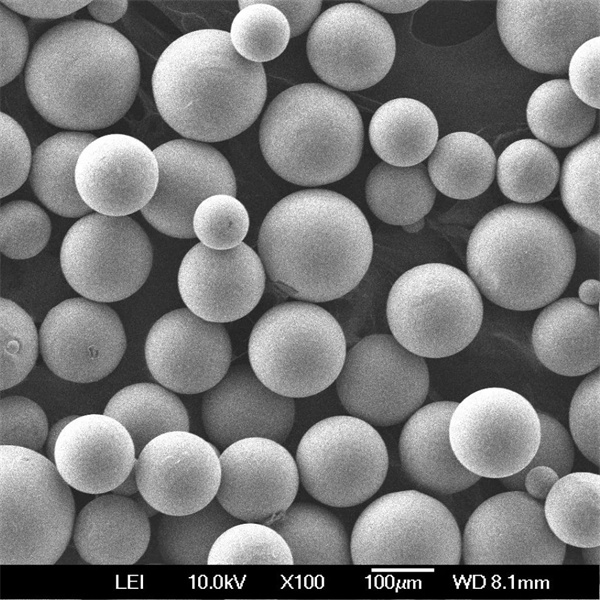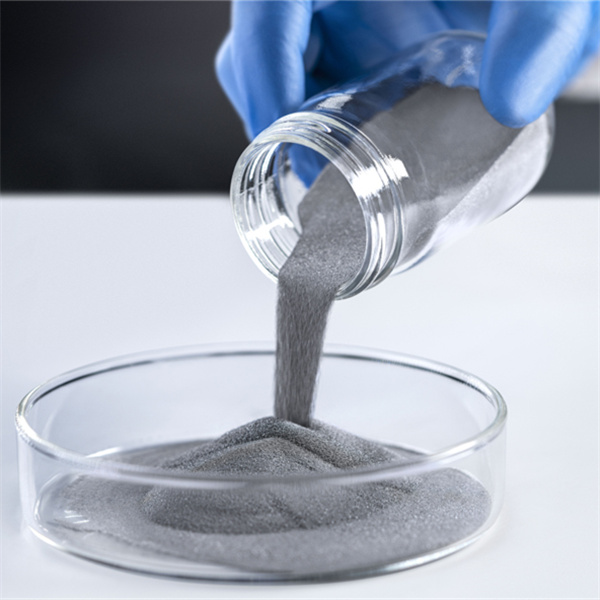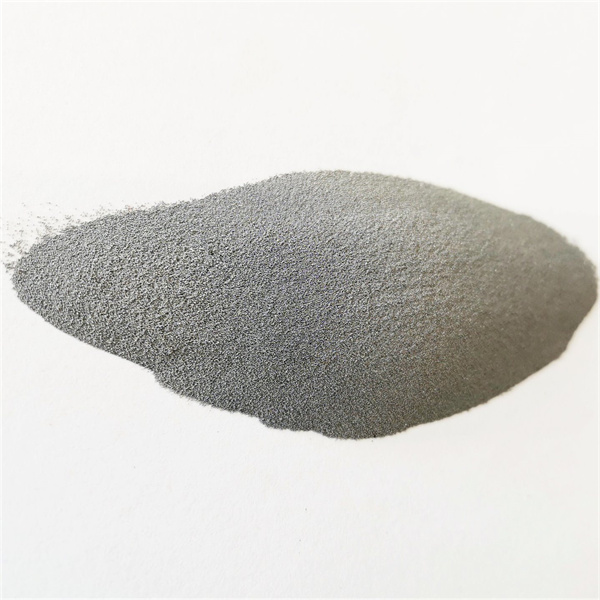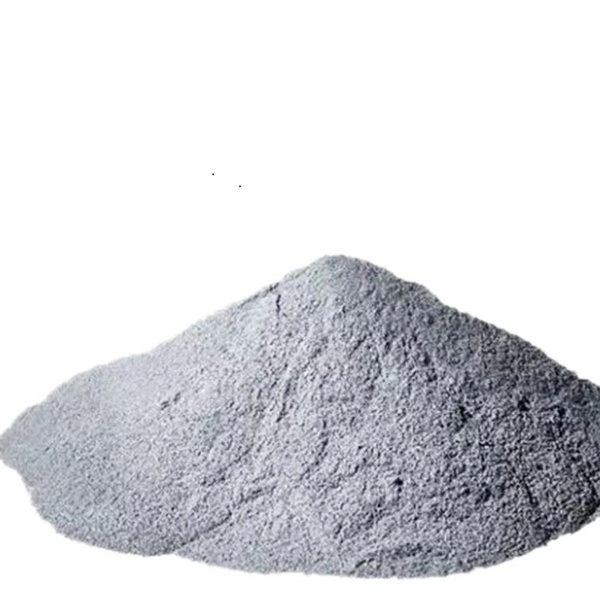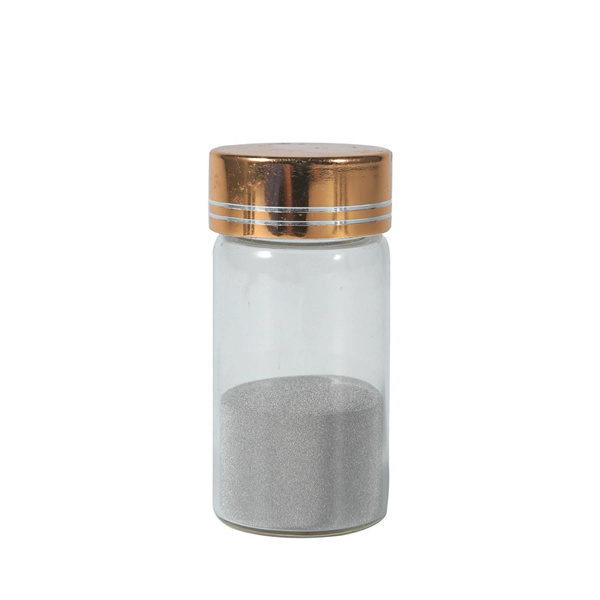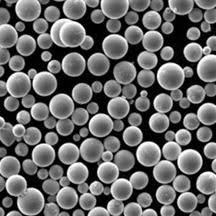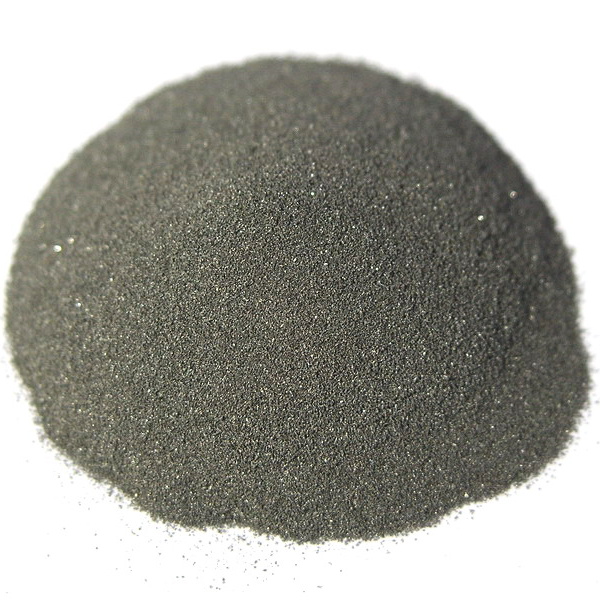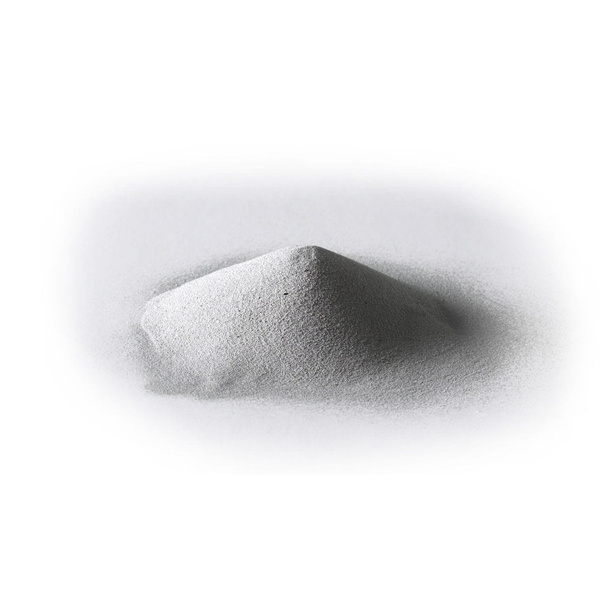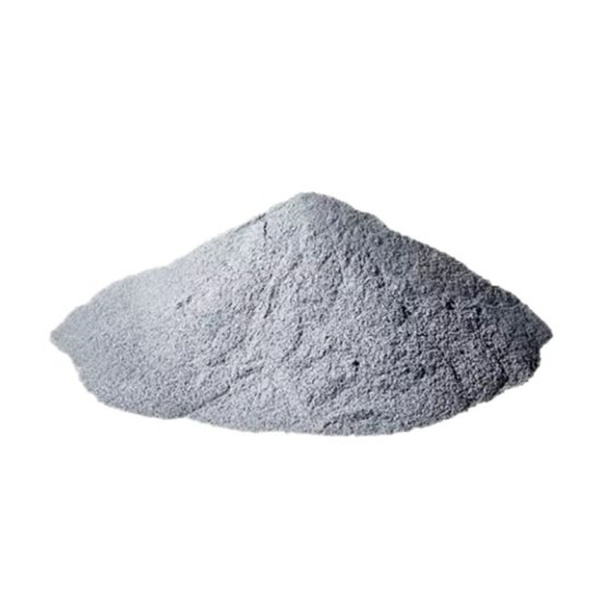ผงโลหะผสมไทเทเนียม
All You Need To Know About 3D Printing Metal Powder Suppliers
ประเภทสินค้า

ผงโลหะผสมไทเทเนียม is composed of titanium mixed with other metallic elements like aluminum, vanadium, iron, and molybdenum. The powders are made by gas atomization, a process that uses high-pressure gas to turn molten alloy into fine spherical particles ideal for additive manufacturing.
Titanium alloys offer the best strength-to-weight ratio of any metallic material. They are as strong as steel but 45% lighter. When produced as fine powders, titanium alloys become suitable feedstock for advanced manufacturing techniques like selective laser sintering (SLS), electron beam melting (EBM), and binder jetting. These methods allow intricate shapes and custom designs not possible with traditional fabrication.
Titanium and its alloys stand out for their corrosion resistance in harsh environments. They withstand saltwater, acids, and chlorine much better than aluminum, magnesium, or steel alloys. Titanium is also inert and non-toxic when implanted in the human body. This biocompatibility makes it invaluable for medical devices and implants.
With advanced properties like high strength, low density, corrosion resistance, and biocompatibility, titanium alloy powders enable lighter, stronger, longer-lasting parts across aerospace, automotive, medical, chemical, marine, and consumer industries.
Titanium Alloy Powder Composition
Titanium alloy powders contain primarily titanium along with alloying elements to improve strength, hardness, and high-temperature performance. The most common titanium alloys are Ti-6Al-4V, Ti-6Al-4V ELI, and Ti-3Al-2.5V.
| อัลลอยด์ | องค์ประกอบ |
|---|---|
| คุณ-ชัล-เฮวี | 90% titanium, 6% aluminum, 4% vanadium |
| Ti-6Al-4V ELI | 90% titanium, 6% aluminum, 4% vanadium, low interstitial impurities |
| Ti-3Al-2.5V | 95% titanium, 3% aluminum, 2.5% vanadium |
Other alloying elements like iron, molybdenum, zirconium, tin, tantalum, or niobium may be present in small quantities. The composition is carefully controlled to achieve target properties after additive manufacturing.
Properties of Titanium Alloy Powder
The unique properties of titanium alloys in powder form enable advanced manufacturing, aerospace, medical, and other leading-edge applications.
| คุณสมบัติ | คุณ-ชัล-เฮวี | Ti-6Al-4V ELI | Ti-3Al-2.5V |
|---|---|---|---|
| ความหนาแน่น | 4.43 g/cm3 | 4.43 g/cm3 | 4.48 g/cm3 |
| จุดหลอมเหลว | 1604 ° C | 1604 ° C | 1615°C |
| แรงดึง | Min 1170 MPa | Min 1100 MPa | Min 1095 MPa |
| ความแข็งแรงของผลผลิต | Min 1035 MPa | Min 1035 MPa | Min 1000 MPa |
| การยืดตัว | 10-15% | 8-15% | 8-10% |
| โมดูลัสยืดหยุ่น | 114 GPa | 114 GPa | 115 GPa |
| ความแข็งแรงเมื่อยล้า | 485 MPa | 485 MPa | 450 MPa |
| ความเหนียวแตกหัก | 75 MPa-m^1/2 | 60 MPa-m^1/2 | 65 MPa-m^1/2 |
| การนำความร้อน | 7 W/m-K | 7 W/m-K | 6.7 w/m-k |
| ความต้านทานไฟฟ้า | 170-190 μΩ-cm | 170-190 μΩ-cm | 172 μΩ-cm |
| สัมประสิทธิ์การขยายตัวทางความร้อน | 8.6 μm/m-°C | 8.6 μm/m-°C | 8.8 μm/m-°C |
The properties of printed parts depend on the additive manufacturing process as well as heat treatment after printing. For example, electron beam melting (EBM) generates finer microstructures and better mechanical properties compared to selective laser melting (SLM). Post-processing like hot isostatic pressing (HIP) can further enhance density, surface finish, dimensional accuracy, and material performance.
Applications of Titanium Alloy Powder
Some of the major application areas for titanium alloy powder include:
| อุตสาหกรรม | แอปพลิเคชัน |
|---|---|
| การบินและอวกาศ | Engine components, airframe parts, fasteners, hydraulic systems |
| ทางการแพทย์ | Implants, surgical instruments, dental roots, braces |
| เกี่ยวกับยานยนต์ | Connecting rods, valves, springs, fasteners, gears |
| เคมี | Pumps, valves, pipes, heat exchangers, reaction vessels |
| น้ำมันและก๊าซ | Drill bits, completion tools, subsea components |
| การผลิตไฟฟ้า | Turbine blades, heat exchangers, steam and gas piping |
| สินค้ากีฬา | Golf clubs, bicycle frames, hockey sticks, lacrosse sticks |
| เครื่องอุปโภคบริโภค | Watches, glasses, jewelry, smartphones, cameras |
Titanium alloys enable lightweight, high-performance designs across industries where strength, corrosion resistance, and biocompatibility are critical. The flexibility of powder metallurgy allows production of complex, net-shape parts not possible with conventional titanium mill products.
Titanium Alloy Powder Specifications
Titanium alloy powders are available in different size ranges, compositions, production methods, and purity levels. Here are some of the key specification parameters:
| พารามิเตอร์ | ค่าทั่วไป |
|---|---|
| ขนาดอนุภาค | 10-45 μm, 15-53 μm, 45-150 μm |
| รูปร่างอนุภาค | เป็นทรงกลมไม่สม่ำเสมอ |
| วิธีการผลิต | Gas atomization, plasma rotating electrode process, hydride-dehydride |
| ความบริสุทธิ์ | Grade 1, 2, 3, 4, 5 |
| Alloy grade | Ti-6Al-4V, Ti-6Al-7Nb, Ti-555, Ti-1023, etc. |
| ความหนาแน่นที่ชัดเจน | 2.5-4.5 g / cm3 |
| แตะความหนาแน่น | Up to 80% of material density |
| ปริมาณออกซิเจน | 3000-5000 ppm |
| ปริมาณไนโตรเจน | 150-500 ppm |
| ปริมาณไฮโดรเจน | 100-200 ppm |
| อัตราการไหล | Up to 25 s/50 g |
| พื้นที่ผิวเฉพาะ | 0.1-1.0 m2/g |
Specifications are based on ASTM B988 for gas atomized spherical titanium alloy powder and other international standards. Custom compositions and particle characteristics are also available for specialized applications.
Titanium Alloy Powder Pricing
Pricing for titanium alloy powder depends on many factors:
| ปัจจัย | ผลกระทบต่อราคา |
|---|---|
| องค์ประกอบของโลหะผสม | Higher alloying content increases cost |
| ระดับความบริสุทธิ์ | Higher purity grades are more expensive |
| การกระจายขนาดอนุภาค | Smaller sizes are priced higher |
| วิธีการผลิต | Plasma and HDH powders cost more than gas atomized |
| สั่งซื้อปริมาณ | Prices decrease with larger order quantities |
| การบรรจุหีบห่อ | Argon purged sealed cans add cost |
ช่วงราคาที่บ่งบอกบางอย่าง:
- Ti-6Al-4V powder 15-45 μm: $50-80/lb
- Ti-6Al-4V powder 45-150 μm: $30-50/lb
- Small lots in sealed cans are ~30% higher
- Plasma Ti-6Al-4V powder: $120-150/lb
- Purity grade 1 powder: $200-300/lb
Contact reputable suppliers like AP&C, Tekna, and Advanced Powders for quoted pricing based on your specific requirements. Be wary of low-cost powders from unknown sources with questionable quality.
Comparison of Titanium Powder Production Methods
Comparison of Titanium Powder Production Methods
| วิธี | การทำให้เป็นอะตอมก๊าซ | การทำให้เป็นอะตอมพลาสมา |
|---|---|---|
| คำอธิบาย | Alloy melted in vacuum chamber, impinged by high-velocity inert gas jets to make powder | Alloy melted using plasma arc torch, steam of ultrafine droplets rapidly solidified into powder |
| ขนาดอนุภาค | 15-150 ไมครอน | 5-45 microns |
| รูปร่างอนุภาค | Irregular spheroids | Very spherical |
| Oxygen Pickup | ปานกลาง | ต่ำ |
| ค่าใช้จ่าย | ต่ำกว่า | สูงกว่า |
| ความยืดหยุ่น | Higher capacity | Small batches |
| แอปพลิเคชันทั่วไป | Most additive manufacturing | การบินและอวกาศทางการแพทย์ |
Gas atomization is the standard production method used by major titanium powder suppliers. Plasma atomization creates finer, more spherical powders but has higher cost and lower output.
คำถามที่พบบ่อย
Q: What are the main advantages of using titanium alloy powder?
A: The main advantages are excellent strength-to-weight ratio, corrosion resistance, bio-compatibility, design flexibility, ability to produce complex net shape parts, and performance at high temperatures.
Q: What industries use titanium alloy powder the most?
A: Aerospace, medical, automotive, chemical processing, oil and gas, sporting goods, and power generation are leading users of titanium powder for advanced components.
Q: What are some examples of titanium alloy powder applications?
A: Specific applications include aircraft engine and airframe parts, biomedical implants and instruments, automotive valves and connecting rods, chemical processing equipment, golf clubs, watches, and bicycles.
Q: What alloy compositions are commonly used with titanium powder?
A: Popular alloys include Ti-6Al-4V, Ti-6Al-7Nb, Ti-555, Ti-1023, and commercially pure titanium grades 1 through 4. Exact composition is tailored to meet property and processing requirements.
Q: What manufacturing processes use titanium alloy powder as feedstock?
A: The main processes are metal injection molding (MIM), laser powder bed fusion (L-PBF), electron beam powder bed fusion (EB-PBF), and directed energy deposition (DED).
Q: How are the properties of powder metallurgy titanium alloys compared to wrought and cast titanium?
A: With optimal processing, powder metallurgy titanium parts can achieve mechanical properties on par and sometimes superior to cast or wrought products. However, property anisotropy and defects require close control and qualification.
Q: What are some of the key specifications for titanium alloy powder?
A: Important characteristics include particle size distribution, particle shape, apparent density, tap density, flow rate, alloy composition, oxygen/nitrogen/hydrogen content, specific surface area, and powder production method.
Q: What precautions are required when handling titanium alloy powder?
A: An inert atmosphere, avoiding ignition sources, grounding equipment, minimizing dust generation, and wearing PPE are essential to handle reactive titanium powder safely. Strict procedures are needed to prevent contamination or changes to powder characteristics.
Wholesale Price: $20/Kg-$300/Kg
Showing all 12 results
FAQ About 3D Printing Metal Powder
ฉันจะติดต่อฝ่ายบริการลูกค้า Metal3DP ได้อย่างไร
เราให้การสนับสนุนลูกค้าตลอด 24 ชั่วโมงทุกวัน คุณสามารถค้นหารายละเอียดการติดต่อของเราในหน้าติดต่อเรารวมถึงโทรศัพท์อีเมลและแชทออนไลน์
Metal3DP มีวัสดุผงโลหะชนิดใดบ้าง?
เรานำเสนอผงโลหะคุณภาพสูงต่าง ๆ รวมถึงสแตนเลสอัลลอยด์อุณหภูมิสูงเหมาะสำหรับกระบวนการเช่นเลเซอร์และอิเล็กตรอนคานผงฟิวชั่นฟิวชั่น
Metal3DP มั่นใจได้อย่างไรกับคุณภาพของผงโลหะการพิมพ์ 3 มิติ?
ด้วยความเชี่ยวชาญด้านการผลิตสารเติมแต่งโลหะอย่างกว้างขวางเราใช้กระบวนการขั้นสูงและการควบคุมคุณภาพที่เข้มงวดเพื่อให้แน่ใจว่าคุณสมบัติเชิงกลและคุณภาพพื้นผิวของชิ้นส่วน
ใช้อุปกรณ์การพิมพ์ 3 มิติของ Metal3DP ในอุตสาหกรรมใด
อุปกรณ์ของเรามีแอพพลิเคชั่นที่หลากหลายในอุตสาหกรรมเช่นการบินและอวกาศการแพทย์ยานยนต์และอื่น ๆ ให้บริการโซลูชั่นสำหรับส่วนประกอบโลหะที่มีประสิทธิภาพสูงในการผลิต
Metal3DP เสนอตัวเลือกโลหะผสมที่กำหนดเองหรือไม่?
ใช่เราให้บริการอัลลอยด์แบบกำหนดเองเพื่อตอบสนองความต้องการวัสดุเฉพาะจากลูกค้า
อะไรคือข้อดีของระบบ SEBM ของ Metal3DP?
ระบบ SEBM ของเราเก่งในการผลิตชิ้นส่วนโลหะที่ซับซ้อนด้วยคุณสมบัติเชิงกลที่ยอดเยี่ยม คุณสมบัติที่สำคัญ ได้แก่ ปริมาณการสร้างชั้นนำของอุตสาหกรรมความแม่นยำและความน่าเชื่อถือ
ฉันสามารถค้นหากรณีแอปพลิเคชันบนเว็บไซต์ Metal3DP ได้หรือไม่?
ใช่เว็บไซต์ของเรานำเสนอกรณีแอปพลิเคชันที่หลากหลายแสดงให้เห็นถึงการใช้เทคโนโลยี Metal3DP ที่ประสบความสำเร็จในอุตสาหกรรมต่างๆ
ฉันจะเริ่มทำงานร่วมกับ Metal3DP ได้อย่างไร
ติดต่อกับเราและทีมงานของเราจะจัดหาโซลูชั่นที่เหมาะกับคุณและแผนการทำงานร่วมกันตามความต้องการของคุณ
เวลาตอบสนองสำหรับบริการที่กำหนดเองของ Metal3DP คืออะไร?
เวลาตอบสนองสำหรับบริการที่กำหนดเองแตกต่างกันไปขึ้นอยู่กับความซับซ้อนของโครงการ เราจะให้เวลาการจัดส่งที่ถูกต้องตามความต้องการของคุณ
Metal3DP มีเทคโนโลยีการพิมพ์ 3 มิติอะไรบ้าง?
เราเชี่ยวชาญในการคัดเลือกเลเซอร์ซินเตอร์ (SLS), การเลือกเลเซอร์ที่เลือก (SLM), และการหลอมเหลวลำแสงอิเล็กตรอนที่เลือก (SEBM) ในเทคโนโลยีการพิมพ์ 3 มิติอื่น ๆ
SEND US
Ask For Other Question?
If you cannot find the answer to your question in our FAQ, you can always leave us a message. We will answer to you shortly.
WAIT FOR US
Next step
01. We will prepare a proposal
Required scope, timeline and APR. Price will be included if you provide us with detail information about a project.
02. Discuss it together
Let’s get acquainted and discuss all the possible variants and options
03. Let’s start building
When the contract is signed, and all goals are set, we can start the first sprint.

